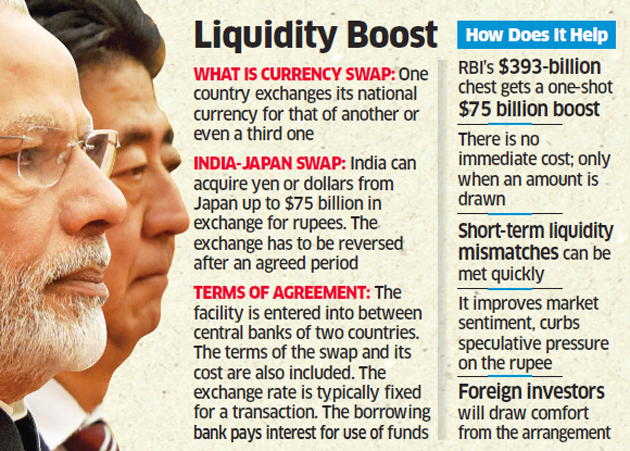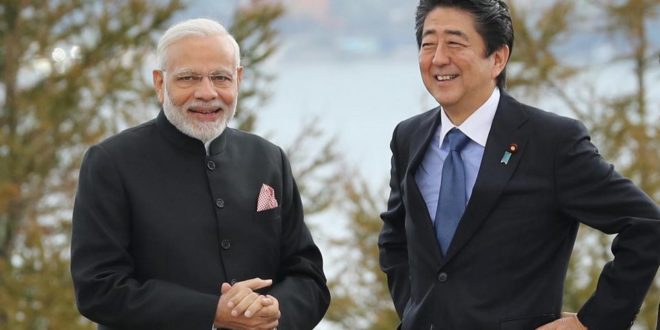On Monday (29-10-2018), the two Asian Giants inked a 75 Billion Dollar Agreement to increase economic stability in both the countries. The deal will make sure that the steeply decreasing Rupee value will not degrade further. The current currency swap deal is just an upgrade to the older version of the same deal. In the old deal, the amount was only 15 Billion Dollar. This replenished bilateral agreement between the countries stabilises both country’s economic and financial aspects.
Currency Swap: How it works?
The currency swap is merely a method of exchanging one country’s currency with another country’s currency without any immediate charges. The amount that is being swapped will be swapped with respect to the other currency’s value and there will not be any other hidden charges. With this deal, Japan and India can exchange both their own currencies as well as in US Dollars.

What are the advantages?
The currency swap aids in a great exchange value in trading where import and exports payment comes. The value will be pre-determined therefore both countries save a lot of money. Without this bilateral deal, the countries have to calculate the exchange value every time in order to pay for the imports and exports. Indian can seek Dollars in exchange for Rupees and Japan can seek Dollars in exchange for Yen. And they can also exchange their own currencies too.
Amid various economic and financial troubles for Indian Rupee value, this agreement one of the largest swap agreements in the world has come for a little rescue. Since April, the Reserve Bank currency reserves had shrunk over more than $426 billion. As many Foreign Portfolio Investors have taken their bid out from RBI, Reserve Bank of India has no option but to sell its dollar reserves to smoothen the volatile nature of Rupee Value.
However, as promising the India – Japan bilateral agreements seem, only the time can say about the growth of Indian Rupee. Other than this agreement, the Giants have also signed a deal for fast train transport between Mumbai and Ahmedabad. Here Japan is investing 80% of the cost at an interest of 0.1% at a tenure of 50 years for repayment.
Image Credit & Courtesy: Economic Times, Asia Times.
 India One News
India One News





